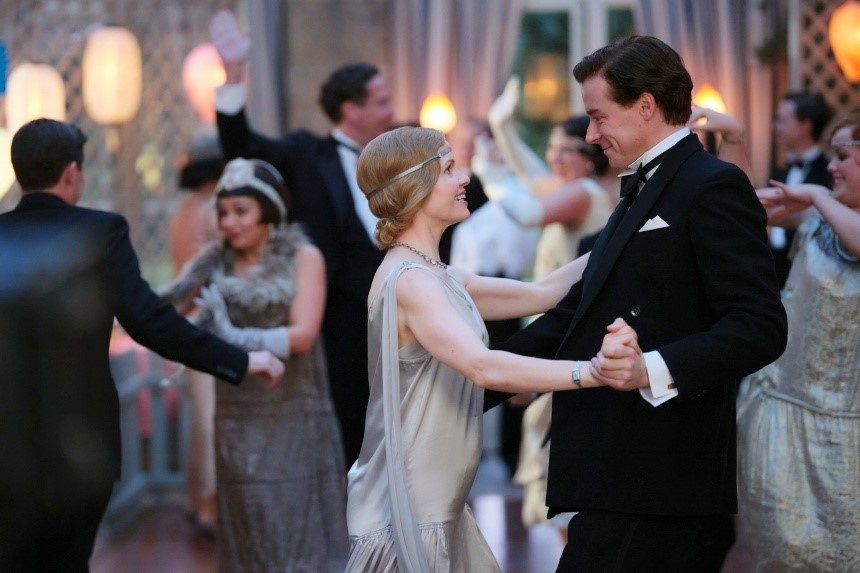Benediction
⭐️ ⭐️ ⭐️ ⭐️
Rating: PG-13
Stars: Jack Lowden, Peter Capaldi, Tom Blyth, Kate Phillips
Writer/Director: Terence Davies
Terence Davies and I have something in common, and no, it’s not that we are both among the most deliberately thoughtful film directors of our time.
The thing is, Davies and I both hate World War I. Not just the way everyone hates all wars (or at least the way all sane people do); but specifically for the fact that World War I is the war that ruined the 20th century.
First, the nations of the world — including the United States, which had no dog in that fight whatsoever — giddily sacrificed the lives of 22 million people for the sole purpose of sustaining a doomed remnant of Medieval European aristocracy.
Second, those same nations made such a hash of the war’s aftermath that an even more devastating conflict, World War II, became inevitable. And now, more than 100 years later, from Ukraine to the Middle East we’re still enduring tremors set off by that misbegotten War to End All Wars.
In his quietly furious, subversively beautiful new film, Benediction, Davies vents his Great War indignation via the true story of British poet Siegfried Sassoon, a decorated enlisted man who scandalized the King’s Army by publishing his 1917 “Soldier’s Declaration,” skewering his superiors for waging an immoral war.
That is the point at which Benediction introduces us to Sassoon, played with hollow-eyed sadness by Jack Lowden (Dunkirk). He has been summoned before a tribunal which, he well knows, has the power to have him executed for treason. But the military is already walking on eggshells when it comes to popular support for the war, so rather than create a martyr for the anti-war movement they declare Sassoon “unfit for duty” and send him to a mental hospital.
Benediction traces Sassoon’s life from the trenches of France to his final days in the 1960s (at which point he is played with heartbreaking despair by former Dr. Who, Peter Capaldi). Sassoon was a man of his time — an era when poets were celebrated the way we now gush over mystery novelists. (The U.S. had its own celebrated World War I poet: Joyce Kilmer, who never saw “a poem as lovely as a tree” — nor did he live to come home from that cursed war.) Even as Sassoon finds both fame and fortune through his art, what began as a now-obvious case of post-traumatic stress syndrome burrows into his psyche until his emotional torments become an intrinsic part of his very being.
But writer/director Davies’ Sassoon is no casual observer of his own life. Through his wartime traumas, his disastrous love affairs with other men, his sham marriage to a woman (Wolf Hall’s Jane Seymour), and his bumbling attempt at fatherhood, the poet believes the universe owes him an explanation for the nagging, perpetual sense that he has no real place in the world.
As he did in similarly masterful films like House of Mirth and A Quiet Passion, Davies asserts absolute control over his material, in no hurry to move his narrative along. His newsreel-based montages of World War I seem to go on forever, providing a visceral punch much like the one François Truffaut accomplished with similar clips in Jules and Jim. He is not afraid to let a character sit on a park bench, scanning an unseen horizon — and compel us to simply watch, attempting to read their mind. It is hard to believe that directors like Davies and explosion specialist Michael Bay exist in the same artistic universe, yet if you give him a chance, ten minutes of quiet contemplation with Davies will grab your attention every bit as much as a pair of Bay’s battling Transformers.
It has become cliché to praise the movie music of 10-time Oscar nominee (and two-time winner) Alexandre Desplat, but in a career spanning genres from historical dramas to cartoons, he has never delivered a more distinctive score. Sometimes lyrical, often ear-janglingly dissonant, his aural portrait of a mind in permanent crisis provides a running commentary that uncannily amplifies the director’s vision.
From Goya’s “Disasters of War” to Picasso’s Guernica, anger over the nature of war has always yielded great art. The only shame of Benediction is that, unlike those masterpieces, there’s no way to hang this one in a museum.
Featured image: A scene from Benediction (Laurence Cendrowicz, Roadside Attractions)
Become a Saturday Evening Post member and enjoy unlimited access. Subscribe now



